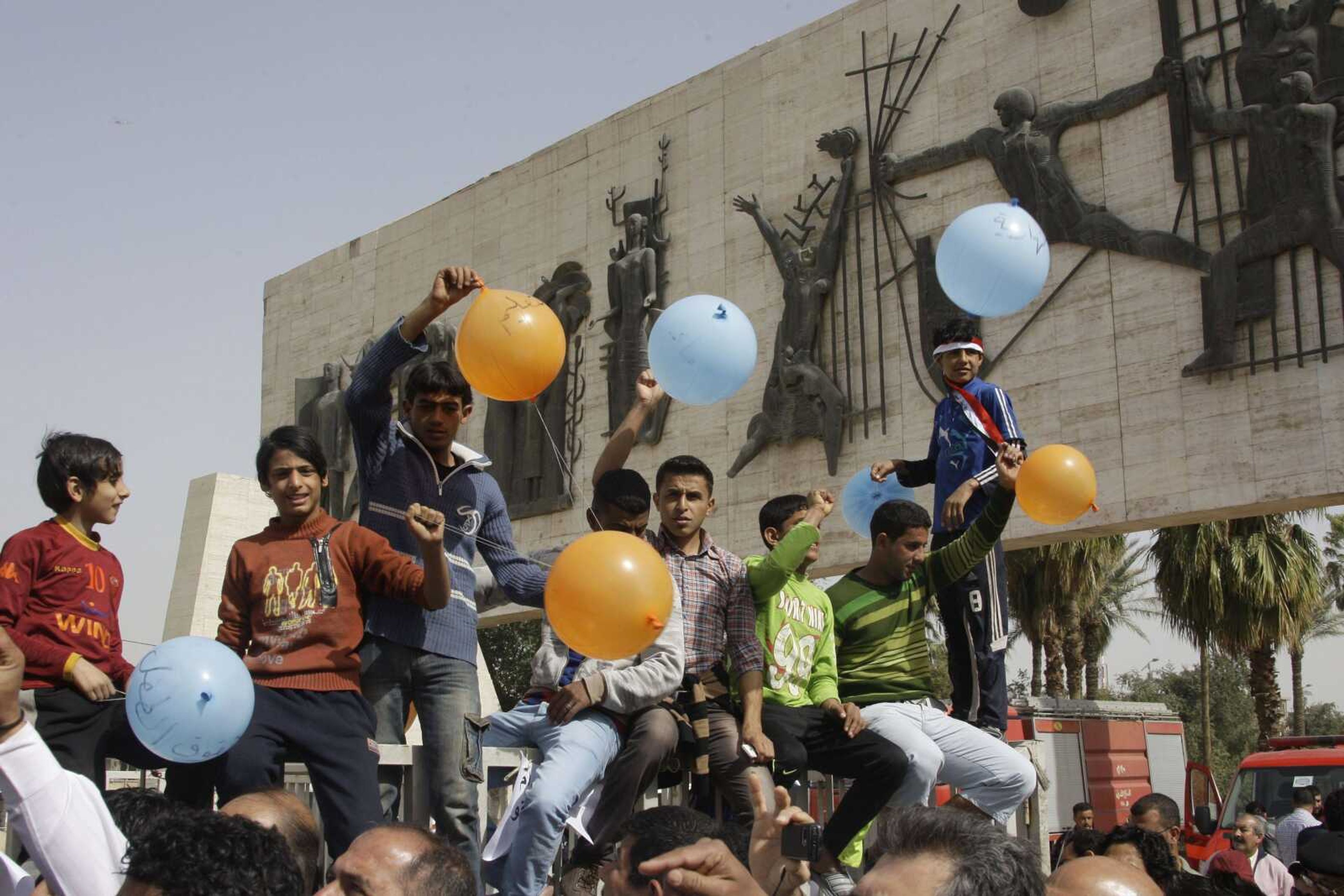Iraq's prime minister reviles protesters on air
BAGHDAD -- Iraq's prime minister on Saturday described protesters calling for a regime change as out of step with the will of the nascent democracy and brushed off his critics as few and weak. In a defiant nighttime interview on state TV, Nouri al-Maliki also questioned if those who want him to go would prefer Iraq to return to the days of dictatorship...
BAGHDAD -- Iraq's prime minister on Saturday described protesters calling for a regime change as out of step with the will of the nascent democracy and brushed off his critics as few and weak.
In a defiant nighttime interview on state TV, Nouri al-Maliki also questioned if those who want him to go would prefer Iraq to return to the days of dictatorship.
The tone of his comments contrasted sharply with the lawmakers' tentative agreement just hours earlier to cut their monthly pay in half and reduce the salaries of the nation's top leaders, in hopes of appeasing protesters who accuse them of living in luxury at the expense of the poor.
"Those who call for regime change are limited in number; they are weak and voices of discord," al-Maliki said in the hour-long interview that was recorded earlier.
"What do they want?" he asked, giving a list of references to deposed ruler Saddam Hussein: "Do they want the return of a dictatorship? Or the Revolutionary Command Council? Or a regime that marginalizes groups?" al-Maliki said. "We say clearly that who ask for the change of this regime are out of line with the will of the nation."
Then he added that those who are calling for reform are making an "accepted demand."
In recent days Al-Maliki has been jeered as a liar by demonstrators who want more jobs, better public services and the end to government corruption. The Shiite prime minister only barely kept his job last year by rounding up enough postvote support after his political party fell far short of a majority in national elections.
Only a month ago, al-Maliki sought to insulate himself from the anti-government unrest spreading across the Middle East, promising to not run again for office when his term is up in 2014 and volunteering to return half of his salary to the public treasury.
Parliament on Saturday went a step further. Lawmakers said they planned to pass a law in a few days to reduce their annual salaries to about $60,000 from $120,000.
However, the plan would leave untouched some $20,000 a month that lawmakers receive in stipends for personal expenses, security and housing.
Iraq has a 15 percent unemployment rate, and the average wage of a midlevel Iraqi government employee is about $600 per month.
Officials described the move as at least a start in narrowing the wide gap between Iraq's privileged and its poor.
"This will keep a kind of balance in society, especially with poor people," said Shiite lawmaker Hakim al-Zamili, whose hard-line Sadrist colleagues proposed the cut.
The 325 legislators still would collect an additional $12,500 each month in housing and security allowances, as well as a $90,000 annual stipend. Also, the prime minister and president's salaries would be slashed to $120,000 a year.
The prime minister's annual salary currently is not public information but has long and widely been believed to be at least $360,000. Al-Zamili said the new law would make the salaries of Iraq's president and prime minister public for the first time.
Iraq's two vice presidents and two deputy prime ministers would each make $108,000.
Iraq still struggles to contain both widespread corruption and violence. Earlier Saturday, gunmen ambushed seven Iraqi soldiers as they were leaving work in a former northern al-Qaida stronghold, killing them and fleeing before they could be captured, authorities said.
The soldiers had changed into their off-duty clothing and were driving off in a sport-utility vehicle when the attackers blocked off the road and opened fire with machine guns just outside the northern city of Mosul, located 225 miles (360 kilometers) northwest of Baghdad.
Connect with the Southeast Missourian Newsroom:
For corrections to this story or other insights for the editor, click here. To submit a letter to the editor, click here. To learn about the Southeast Missourian’s AI Policy, click here.










